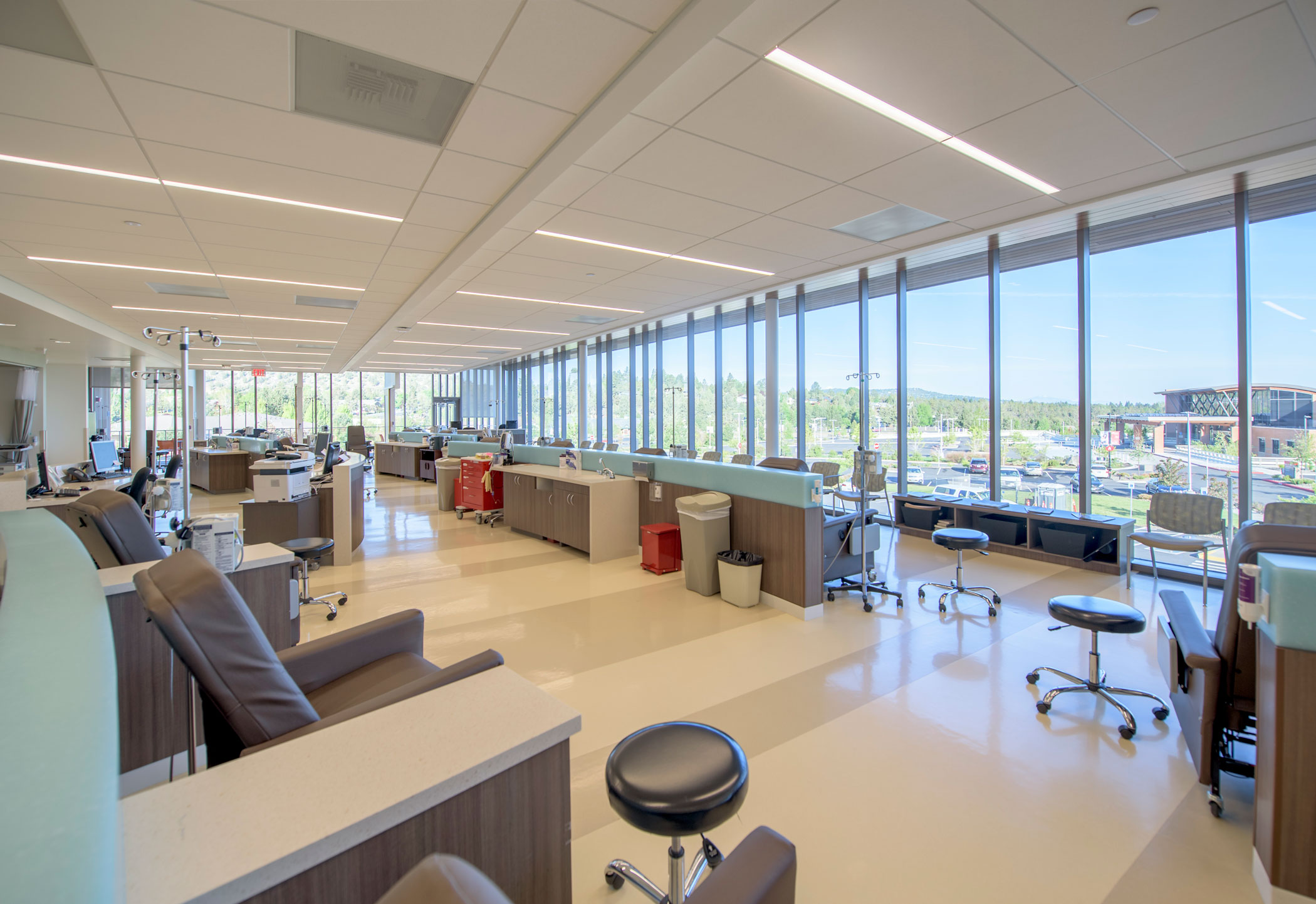Chemotherapy
Chemotherapy, commonly called 'chemo,' is one of the key weapons in our arsenal for the treatment of many cancers.
Chemotherapy treatment involves many variables and is personalized for each of our patients. Your medical oncologist at the St. Charles Cancer Center will work closely with you to determine the best course for your specific cancer.
Drugs may be administered as an injection, through an IV, or orally in the form of a pill, capsule or liquid. How often and how long you receive treatment is based on the type of cancer, the goals of treatment and how your body reacts to the chemotherapy. Chemotherapy may also be combined with other forms of treatment, such as surgery or radiation therapy.
Chemotherapy targets fast-growing cancer cells, but it can also harm healthy cells that divide quickly such as the cells inside your mouth, intestine or hair. The damage to healthy cells can cause side effects, but these side effects generally improve over time and go away after the chemotherapy is complete. The St. Charles Cancer Center staff is there every step of your journey to ensure side effects are minimized and managed.
Radiation therapy
Radiation therapy (also called radiotherapy) is a treatment that uses high doses of radiation to kill cancer cells, slow the spread of cancer cells or help reduce symptoms from cancer, such as pain. Radiation therapy may be combined with other forms of treatment, such as surgery or chemotherapy. Your oncologist at St. Charles Cancer Center will work closely with you to determine the best treatment for your specific cancer.
Approximately 60% of people with cancer undergo radiation therapy. Treatment is painless. Patients are not radioactive following treatments and can resume normal activities.
Radiation therapy can be administered in two forms:
- External beam radiation therapy aims radiation at your cancer from outside the body through a machine called a linear accelerator. The machine, which may be noisy, rotates around you, sending radiation to a localized part of your body from many directions. For example, if you have lung cancer, you will get radiation to your chest only and not the rest of your body. External beam is typically delivered five days a week, Monday through Friday, for a period of days or weeks.
- Internal radiation therapy (brachytherapy) places a source of radiation inside your body. The goal of brachytherapy is to target the radiation dose to the cancerous area, limiting the radiation dose to healthy tissue and organs. Typically, five short treatments are delivered over a two-week period.
Our board-certified radiation oncologists provide the following comprehensive services:
- 3D Conformal Radiation Therapy
- IMRT (Intensity Modulated Radiation Therapy)
- IGRT (Image Guided Radiation Therapy)
- SBRT (Stereotactic Body Radiation Therapy)/ SABR (Stereotactic Ablative Radiotherapy)
- SRS (Stereotactic Radiosurgery)
- Electronic brachytherapy
Surgery
Surgery is used to diagnose, treat or even, in some cases, help prevent cancer. Approximately 60% of cancer patients will undergo surgery, either by itself or in combination with other therapies.
At St. Charles, we partner with our region’s highly trained surgeons to provide comprehensive, technologically-advanced surgical options to treat cancers of the breast, lung, prostate, colon, rectum, head and neck, brain, thyroid, bladder, uterus, skin and bladder. Our surgical partners specialize in the latest minimally invasive and robotic techniques.

